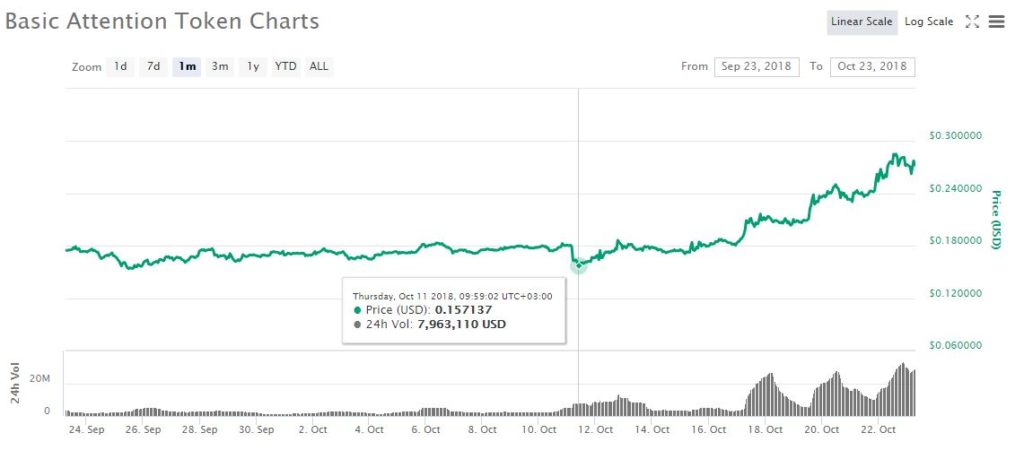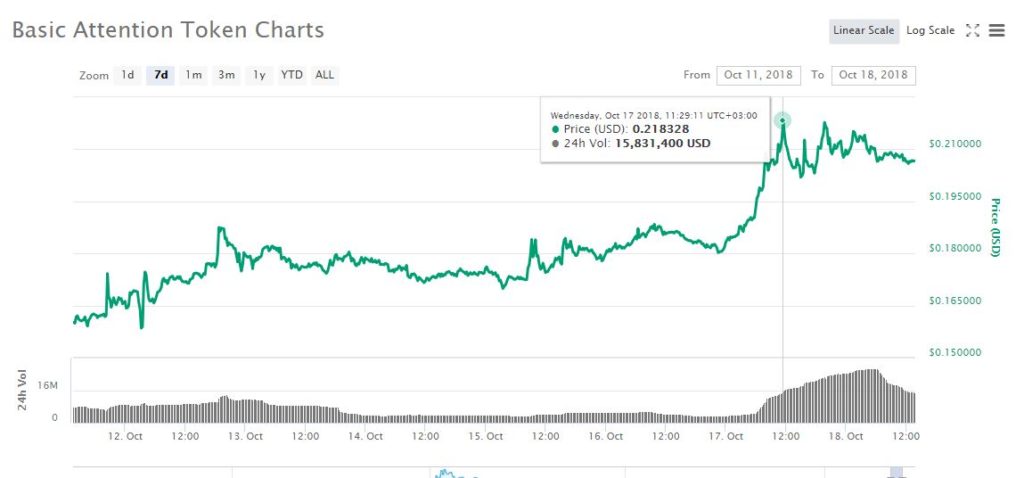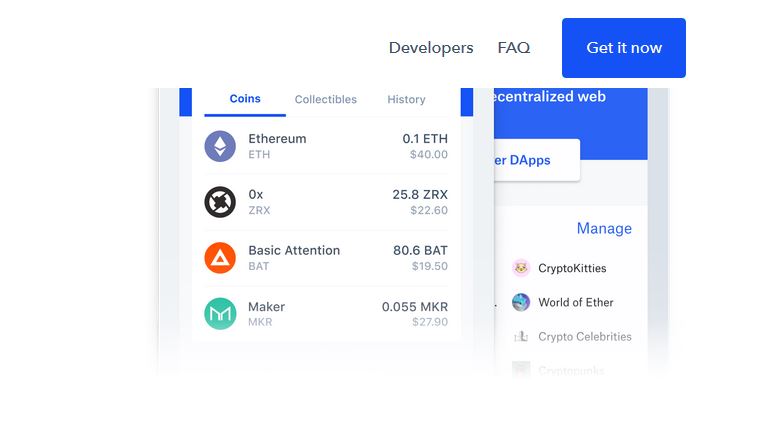2020-4-8 13:40 |
Brave took the world by storm by introducing an internet browser with a native token. The Basic Attention Token (BAT) allows the browser to function as its own mini-economy. The browser also offers value as a privacy-enhancing web tool in the age of surveillance. But the real utility of BAT demands further inquiry.
Synergy: Brave and BATIt’s becoming more challenging to keep one’s online affairs private.
Almost every website tracks users and sells their data in what’s has become one of the most robust marketplaces on the internet.
In a world where people can longer trust their browser, Brave built a product that tackles this very problem. By blocking all third-party advertisements, the Brave browser has a native ad-blocker installed.
Brave doesn’t just block ads; it also blocks trackers.
If you’re a frequent visitor to financial news websites, you may notice that you often see a lot of online ads from financial companies. This is because a tracker from the news sites passes on your interest in finance to similar companies, allowing for targeted advertisements.
While Brave doesn’t eradicate the concept of advertisements, it restricts the data abuse inherent within advertising. Encrypted user data is leveraged to run targeted ads, but the data never actually leaves the user’s device; not even Brave has access to this data.
BAT is a cryptocurrency native to the Brave browser. Using Brave’s integrated wallet, users can earn the token for viewing advertisements or use the token to “tip” their favorite content creators. BAT can be tipped to creators on various platforms, including Twitter, Reddit, YouTube, Vimeo, and many others.
The default setting is for advertisements to remain blocked. Users have to opt-in for advertisements to view them and reap their BAT rewards.
The Value Proposition of BATAs the primary currency for the Brave ecosystem, BAT is used as a medium of exchange within this niche economy.
The browser now has a crypto wallet that supports Ethereum-based assets. Still, this wallet doesn’t offer the same functionality that the standalone BAT wallet offers.
For example, users cannot tip their favorite content creators or earn rewards with a token other than BAT.
Advertisers currently dominate the landscape, rather than the users, whose attention creates all the value. On the contrary, BAT and Brave denounce this hierarchy and, instead, allow users to dictate who gets compensated.
Advertisers and intermediaries no longer get to hoard mountains of user data, sell personal information, or keep the lion’s share of the revenue. Nearly three-quarters of what advertisers pay Brave to run their ads on the browser goes to users; Brave keeps the remaining 30%.
This, in turn, gives rise to a new source of monetization for those making YouTube and Vimeo videos. Twitter and Reddit content creators also have an actual source of revenue they can leverage directly from their social media accounts.
Overall, this creates a user-driven source of monetization for platforms via Brave’s tipping feature.
Brave and BAT are creating a distributed media economy where rewards flow from token holders to recipients of their choice. These rewards only make up a small economy, but the vision is grand.
BAT’s Token EconomicsRealistically, Brave may have been better off integrating a BTC or ETH wallet to run on its platform. A widely-used cryptocurrency has clear advantages, the primary being network effects. Users that receive BAT typically liquidate the token for fiat or a widely-used cryptocurrency like Bitcoin.
To move BAT from the Brave wallet to another wallet to sell it, however, the user first needs to submit KYC to Uphold, Brave’s wallet partner.
BAT is used as compensation and includes over 250,000 e-commerce and brick and mortar partners with whom users can earn the token. This is thanks to Brave’s partnership with the TAP Network.
TAP Network will allow Brave users to use their BAT to pay for services or convert tokens into gift cards offered by partner brands. The company’s app, Hooch, has over 50,000 downloads on the Google Play Store.
However, this partnership was announced over a year ago. The TAP Network was only just integrated into Brave’s Nightly version, meant for developers and users that are willing to experiment with new features.
Another inherent issue is the lack of value capture.
Popular staking tokens, like Tezos (XTZ) and Cosmos (ATOM), capture value through staking yields and transaction fees. BAT has no such feature. It is merely an incentive for Brave users to view advertisements and a medium of exchange within the “Brave economy.”
Brave controls BAT issuance and supply. As a result, they do not need to worry about risks that arise from using third-party tokens.
Risks introduced by a token that Brave cannot control, such as BTC, ETH, or LTC, could cause unnecessary hassles for users.
If Brave wanted to launch a token to ensure no third-party asset could produce unmitigable risk, a smarter choice would’ve been to introduce BAT as a stablecoin. At current, the price of BAT fluctuates according to speculation on the asset. This may affect user behavior when using Brave and BAT.
Thus, investing in BAT may not be the best option. And, despite the KYC barrier, earning BAT is likely the better alternative. This is because users would need to switch to a privacy-centric internet browser to begin earning.
Excluding the small monetary rewards inherent with Brave, being in control of one’s privacy is advantageous.
Is BAT Worth Investing In?Since there is no organic demand, there is no real fundamental or narrative-driven investment thesis for BAT. The only thing one could rely on is technical analysis and other price-centric metrics.
BAT gained much attention from the crypto community because it introduced a new dimension of functionality for crypto. But these plaudits should be directed at the Brave browser instead.
Overall, the case for Brave as a private browser with an inbuilt economy is compelling. But the value proposition of BAT within this economy could undoubtedly be called into question.
As mentioned above, it’s better to earn BAT than to invest in the digital asset.
The post Is It Better to Earn Brave’s BAT Token, or Invest in it? appeared first on Crypto Briefing.
origin »Bitcoin price in Telegram @btc_price_every_hour
Waves Community Token (WCT) на Currencies.ru
|
|



















